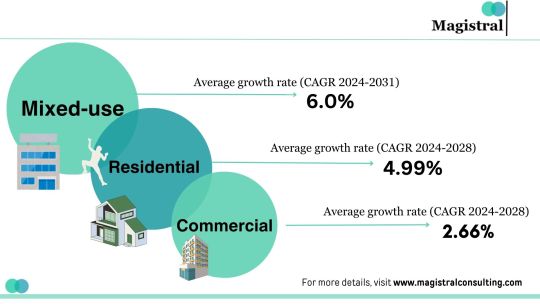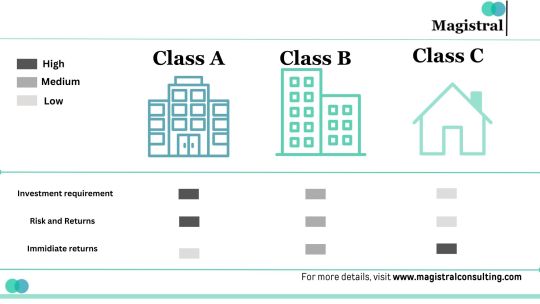#Industry Analysis
Explore tagged Tumblr posts
Text
The Impact of In-Situ Resource Utilization (ISRU) on Space Robotics and Autonomous System (Space RAS) Market: Mining and Manufacturing in Space

Introduction:
As humanity ventures further into space, the need for sustainable and efficient exploration has become increasingly apparent. In-Situ Resource Utilization (ISRU) is a critical technology that addresses this need by enabling the extraction and use of local resources from celestial bodies.
This approach not only reduces the dependence on Earth-based supplies but also significantly impacts the development and application of Space Robotics and Autonomous System (Space RAS) Market.
This article delves into the influence of ISRU on space robotics, focusing on the mining and manufacturing processes that are transforming space exploration.
Download FREE Sample: https://www.nextmsc.com/space-robotics-and-autonomous-system-space-ras-market/request-sample
Introduction to In-Situ Resource Utilization (ISRU)
In-Situ Resource Utilization (ISRU) involves utilizing resources found on celestial bodies—such as the Moon, Mars, or asteroids—rather than transporting all necessary materials from Earth. ISRU technologies include mining, processing, and manufacturing materials directly in space, which can drastically reduce mission costs and enhance the sustainability of long-term space operations.
The Role of Space Robotics in ISRU
Space robotics play a pivotal role in the implementation of ISRU technologies. Robotic systems are essential for conducting the complex and often hazardous tasks involved in resource extraction and processing. The impact of ISRU on space robotics can be categorized into several key areas:
Inquire before buying: https://www.nextmsc.com/space-robotics-and-autonomous-system-space-ras-market/inquire-before-buying
1. Development of Specialized Mining Robots
ISRU requires the development of specialized mining robots capable of operating in harsh extraterrestrial environments. These robots are designed to perform tasks such as drilling, excavation, and sample collection. Key considerations for these robots include:
Adaptability: Mining robots must be adaptable to various terrains and environmental conditions, from the rocky surface of Mars to the icy regolith of the Moon. Advanced mobility systems inspired by nature and robust design features are crucial for overcoming these challenges.
Autonomy: Given the communication delays between Earth and distant celestial bodies, mining robots must be highly autonomous. They need to operate independently, make real-time decisions, and adjust their operations based on environmental feedback.
2. Integration of Resource Processing Systems
In addition to mining, ISRU involves processing extracted materials to make them usable. Space robotics are essential for integrating and operating resource processing systems, including:
Resource Refinement: Robots are used to refine raw materials extracted from celestial bodies. This may involve crushing, heating, or chemical processing to obtain valuable resources such as water, oxygen, and metals.
Manufacturing Components: Processed materials can be used to manufacture components for space habitats, spacecraft, and other infrastructure. Robotic systems capable of 3D printing and assembling parts from in-situ resources are increasingly important for building sustainable space operations.
3. Enhancing Mission Sustainability and Efficiency
ISRU-driven space robotics contribute to mission sustainability and efficiency by:
Reducing Payload Mass: By utilizing resources on-site, the mass of payloads transported from Earth can be significantly reduced. This allows for more efficient use of spacecraft launch capacity and decreases mission costs.
Enabling Longer Missions: Access to local resources supports longer-duration missions by providing essential supplies such as water and oxygen, and by facilitating the construction of habitats and other infrastructure.
Technological Innovations in ISRU-Related Space Robotics
Several technological innovations are driving the development of space robotics for ISRU applications:
1. Advanced Drilling Technologies
Innovations in drilling technologies are crucial for efficient resource extraction. Developments include:
Drill Design: Space drills are designed to penetrate and extract materials from diverse substrates, including loose regolith and hard rock. Recent advancements focus on improving drill efficiency and reliability in low-gravity and vacuum environments.
Autonomous Operation: Advanced sensors and AI algorithms enable drilling robots to autonomously identify resource-rich areas and optimize drilling parameters, reducing the need for human intervention.
2. In-Situ Resource Processing Units
Processing units are essential for converting raw materials into usable forms. Innovations include:
Regolith Processing: Technologies for processing lunar and Martian regolith to extract valuable minerals and produce construction materials are under development. This includes methods for converting regolith into metal alloys and other useful compounds.
Water Extraction: Systems for extracting water from the lunar or Martian soil or ice deposits are being refined. This involves advanced techniques for sublimating and purifying water to make it suitable for consumption and other uses.
3. 3D Printing and Manufacturing Systems
3D printing technologies are transforming how components are manufactured in space:
Material Synthesis: 3D printers designed for space applications can use ISRU-derived materials to produce parts and tools. This capability reduces reliance on Earth-supplied materials and supports the construction of habitats and equipment in space.
On-Demand Production: The ability to print components on demand enables rapid adaptation to changing mission needs and repair of damaged equipment, enhancing mission flexibility and resilience.
Case Studies and Real-World Applications
1. NASA’s Regolith Excavation and Processing
NASA has been developing technologies for regolith excavation and processing for lunar missions. The Lunar Reconnaissance Orbiter and upcoming Artemis missions will use robotic systems to explore and extract lunar regolith, which can be processed to produce oxygen and construction materials.
2. Mars Rover Missions
The Mars rovers, such as Curiosity and Perseverance, are equipped with advanced instruments for analyzing Martian soil and rocks. Future missions will integrate ISRU technologies to test and demonstrate resource extraction and processing capabilities on Mars.
3. Asteroid Mining Projects
Private companies and space agencies are exploring asteroid mining as a potential source of valuable resources. Robotic spacecraft are being designed to land on asteroids, extract materials, and return samples to Earth or process them in space for future use.
Challenges and Future Directions
While ISRU holds great promise, several challenges need to be addressed:
1. Technological and Engineering Challenges
Developing reliable and efficient mining and processing robots for space requires overcoming significant engineering challenges. These include designing systems that can operate in extreme temperatures, low gravity, and high radiation environments.
2. Cost and Resource Allocation
Investing in ISRU technologies and space robotics requires substantial financial resources. Balancing the cost of development with the potential benefits is a critical consideration for space agencies and commercial entities.
3. Legal and Regulatory Considerations
The use of extraterrestrial resources raises legal and regulatory questions, including property rights and resource ownership. Addressing these issues is essential for ensuring that ISRU activities are conducted in a manner that is fair and sustainable.
Conclusion
In-Situ Resource Utilization (ISRU) is transforming the landscape of space exploration by enabling the extraction and use of local resources. Space robotics play a crucial role in this transformation, driving advancements in mining, processing, and manufacturing technologies. By leveraging the power of ISRU, space missions can become more sustainable, efficient, and cost-effective.
As the Space Robotics and Autonomous Systems (Space RAS) market continues to evolve, the integration of ISRU technologies will play an increasingly significant role in shaping the future of space exploration. By addressing current challenges and capitalizing on technological innovations, space robotics will pave the way for a new era of exploration and development in the cosmos.
3 notes
·
View notes
Text

Finally someone willing to call out the double standard that people give Killers of the Flower Moon
#killers of the flower moon#the marvels#marvel#apple#nia decosta#martin scorsese#film#movies#industry analysis#box office#original post#gif#the simpsons#barney gumble#just hook it to my veins
5 notes
·
View notes
Text
#Global Floating Photovoltaic Power Plant Solution Market Size#Share#Trends#Growth#Industry Analysis#Key Players#Revenue#Future Development & Forecast 2023-2032
2 notes
·
View notes
Text
The Future of Precision: Understanding Automatic Measuring Lines
In the realm of manufacturing and quality control, precision is paramount. One innovative solution that has transformed how industries approach measurement is the automatic measuring line. This advanced technology enhances efficiency, accuracy, and consistency in measuring various products. In this blog, we’ll explore what automatic measuring lines are, their benefits, applications, and how they are revolutionizing the manufacturing landscape.

What is an Automatic Measuring Line?
An automatic measuring line is a system designed to measure the dimensions and characteristics of products automatically as they move along a production line. Utilizing a combination of sensors, cameras, and software, these systems can quickly gather data about various parameters, such as length, width, height, and surface quality, ensuring that each product meets specified standards.
Key Components of an Automatic Measuring Line
Sensors: Various types of sensors (laser, ultrasonic, or optical) are employed to capture accurate measurements as products pass through the line.
Cameras: High-resolution cameras can be used to inspect surface quality and detect defects, providing visual data alongside dimensional measurements.
Control System: A centralized control system processes the data collected, often integrating with other production systems to ensure seamless operation.
Data Analysis Software: Advanced software analyzes the measurement data, generating reports and alerts for any deviations from quality standards.
Benefits of Automatic Measuring Lines
Enhanced Accuracy: Automatic measuring lines eliminate human error, providing highly accurate measurements that are crucial for maintaining quality control.
Increased Efficiency: With automated systems, measurement processes are significantly faster than manual methods, allowing for higher production rates and reduced downtime.
Consistent Quality: By continuously monitoring and measuring products, manufacturers can maintain consistent quality standards throughout production.
Real-Time Data: The ability to collect and analyze data in real-time enables immediate adjustments to the production process, minimizing waste and improving overall efficiency.
Cost Savings: While the initial investment may be significant, the long-term savings from reduced errors, lower labor costs, and improved product quality often outweigh the costs.
Applications of Automatic Measuring Lines
Manufacturing: Industries such as automotive, aerospace, and electronics utilize automatic measuring lines to ensure components meet strict tolerances.
Food and Beverage: Measurement lines can assess packaging dimensions and ensure compliance with safety regulations, improving quality assurance in the food industry.
Pharmaceuticals: In drug manufacturing, automatic measuring lines are essential for maintaining precise measurements and ensuring product safety and efficacy.
Textiles: Measuring fabric dimensions and quality ensures that products meet design specifications, helping maintain standards in the fashion industry.
Conclusion
Automatic measuring lines represent a significant advancement in manufacturing technology, offering unparalleled accuracy, efficiency, and consistency. As industries continue to evolve and demand higher standards, the integration of automatic measuring lines will play a pivotal role in ensuring that products not only meet but exceed quality expectations.
For manufacturers looking to enhance their production processes, investing in automatic measuring lines is not just a trend but a step toward future-proofing their operations. By embracing this technology, businesses can streamline their measurement processes, reduce waste, and ultimately deliver better products to their customers.
0 notes
Text
Learn how industry analysis enhances stock picking in fundamental analysis. Understand competitive landscapes, growth prospects, and valuation for better investment decisions.
#share market advisor#best stock market advisor in india#how to select stocks for long term#good fundametal stocks#industry analysis#industry analysis in fundamental analysis#stock advisory company#stock market ai#best stock market advisor
0 notes
Text
Jamshedpur: Budget 2024-25 Hailed as Catalyst for India's Economic Transformation in CII Jharkhand Session
Industry Leaders Laud Comprehensive Approach to Growth and Development A CII Jharkhand session provided insights into the far-reaching impact of the Union Budget 2024-25 and GST reforms. Business leaders praised the government’s balanced approach to fostering economic growth across various sectors. JAMSHEDPUR – Industry experts convened to analyze the implications of the latest Union Budget and…
#बिजनेस#business#CII Jharkhand session#economic Growth#GST reforms#Indian economy forecast#industry analysis#Infrastructure Development#Jamshedpur business event#MSME Support#tax regime changes#Union Budget 2024-25
0 notes
Text

Unlock Success! Dive into a world of transformative consultations with IID Biz Consultancy's video services.
Our platform connects you with top-tier consultants, offering personalized advice that propels your business toward growth and innovation.
Experience the power of face-to-face guidance without boundaries.
#business#entrepreneurship#entrepreneur#consulting#smallbusiness#management#success#bizconsultancy#businessconsulting#tax consulting services#tax consultant#taxconsultation#industryexperts#industry analysis#expertadvice#expertguidance
0 notes
Text
How software can improve construction document management

Since building projects create a lot of paperwork, it's important for professionals to streamline their work and use technology to handle paperwork more efficiently. We'll talk about how important it is for construction software to change the way documents are managed in the construction business.
The problem with managing documents in construction
In our field, managing documents is more than just a problem with logistics; how we do it has a direct effect on how well and quickly our projects run. For instance, problems with version control can cause misunderstandings that force teams to work from old plans. This misalignment hurts the quality of the job and requires expensive redoing to fix mistakes made when old information was used. Accessibility is also very important, especially when building workers are in different places. Without a way to make entry easy, teams often have to wait because they can't find important documents, which messes up schedules and slows down projects. On top of that, every construction job has a huge number of documents that need to be carefully organized. If you don't have a good document management system, you might lose or forget about files, which can cause confusion, disagreements, and extra costs because of changes you didn't expect. Basically, poor document management has many effects on building companies, project managers, and other people who work in the industry. It hurts project timelines by adding delays, messing up processes by leading to misunderstandings, and raising costs by requiring more work and more time to settle disagreements.
Different kinds of papers you need to keep
No matter the job, people who work in construction have to keep track of a lot of different documents, each of which is very important. These papers have the following: Sending in Material Reports on Inspections End of Life Documents Logs of communications Work diaries every day Needs for knowledge Logs of the meeting
How to use construction tools to keep track of documents effectively
By giving professionals and businesses a single place to create and store documents, construction software has a big impact on how they organize documents. With this centralized method, it's easy to:
Learn about document changes Find models for documents Get the information you need Work together right now Use editing tools
0 notes
Text
#ManufacturingWordPressThemes #WordPressDesign #IndustrialWebsite #ManufacturingIndustry #WebDevelopers #OnlinePresence #ResponsiveDesign #WebsiteTemplates #ProfessionalThemes #BestThemes #TechSolutions #WebDesignInspo #WordPressExperts #DesignersCommunity #ManufacturingSector #BusinessWebsite #DigitalMarketing #WebsiteDevelopment #ManufacturingTechnology #CustomThemes
#premium wordpress themes#premium wordpress theme#wordpress premium themes#online learning wordpress theme#paid wordpress themes#app landing wordpress theme#consulting business wordpress theme#education & online course wordpress theme#education wordpress theme#wordpress plugins#manufacturing#manufacturer#lin manuel miranda#industrial design#industry analysis
0 notes
Text
How Archer-Daniels-Midland Company is Shaping the Future of the Smart Food Market: Strategies and Innovations

Introduction:
Archer-Daniels-Midland Company (ADM) stands as a titan in the global food and agribusiness sector, renowned for its extensive portfolio of ingredients, technologies, and solutions. As the smart food market undergoes rapid transformation, ADM is at the forefront, leveraging its expertise and resources to drive innovation and growth.
This article delves into the strategies, emerging innovations, and recent developments by ADM that are shaping the future of the Smart Food Market.
Download FREE Sample: https://www.nextmsc.com/smart-food-market/request-sample
1. Embracing Technology for Enhanced Food Solutions
ADM's strategy for advancing in the smart food market revolves around integrating cutting-edge technology into its operations and product offerings. The company has heavily invested in digital technologies and data analytics to optimize food production and enhance product quality.
AI and Machine Learning: ADM is leveraging artificial intelligence (AI) and machine learning to improve food processing efficiency and product development. By analyzing vast datasets, ADM's AI systems can predict trends, optimize ingredient blends, and ensure consistent product quality. This technological integration not only streamlines operations but also supports the creation of innovative food solutions tailored to consumer demands.
Blockchain for Transparency: In response to growing consumer demand for transparency and traceability, ADM has implemented blockchain technology in its supply chain operations. Blockchain provides a secure and transparent record of each step in the food production process, from farm to table. This technology enhances food safety, reduces fraud, and builds consumer trust by ensuring that products are authentic and sustainably sourced.
2. Focus on Sustainable and Health-Conscious Solutions
Sustainability and health are pivotal themes in ADM's strategy as it adapts to the evolving smart food market. The company is committed to developing products and processes that align with environmental and health-conscious trends.
Sustainable Sourcing and Processing: ADM has made significant strides in sustainable sourcing and processing. The company emphasizes reducing its carbon footprint and minimizing waste through initiatives such as energy-efficient processing technologies and sustainable agricultural practices. By focusing on eco-friendly solutions, ADM aims to meet the growing consumer demand for sustainable and responsibly produced food products.
Health and Wellness Innovations: ADM's innovation strategy includes developing health-focused ingredients and solutions that cater to the rising consumer interest in wellness. The company is investing in research and development to create functional ingredients that offer health benefits beyond basic nutrition. This includes probiotics, plant-based proteins, and nutrient-rich additives designed to support overall well-being and address specific dietary needs.
3. Expanding Product Offerings and Market Reach
ADM's approach to expanding its product offerings and market reach is integral to its strategy in the smart food market. The company is continually diversifying its product portfolio and exploring new market opportunities.
Product Innovation: ADM is actively involved in innovating new food and ingredient products that align with current consumer trends. This includes developing smart food products that incorporate advanced nutritional benefits, such as fortified snacks and functional beverages. By staying ahead of market trends, ADM ensures that its product offerings remain relevant and competitive.
Global Expansion: To capitalize on emerging markets, ADM is expanding its global footprint. The company is entering new regions and strengthening its presence in existing markets through strategic acquisitions and partnerships. This global expansion allows ADM to leverage regional trends, access new consumer bases, and enhance its overall market position.
4. Strategic Partnerships and Collaborations
Strategic partnerships and collaborations are key elements of ADM's strategy to drive growth and innovation in the smart food market. The company actively seeks alliances with other industry leaders, technology providers, and research institutions to accelerate its development efforts.
Collaborations with Startups: ADM is engaging with startups and emerging companies that offer innovative technologies and solutions. These collaborations enable ADM to access new technologies, explore novel product concepts, and accelerate the commercialization of cutting-edge food solutions. By partnering with startups, ADM fosters a culture of innovation and stays at the forefront of industry advancements.
Academic and Research Partnerships: ADM also collaborates with academic institutions and research organizations to advance food science and technology. These partnerships facilitate joint research projects, knowledge exchange, and the development of new technologies and products. Through these collaborations, ADM contributes to advancing the scientific understanding of food and nutrition while benefiting from the latest research insights.
5. Enhancing Consumer Engagement and Digital Presence
In line with its strategy to meet evolving consumer expectations, ADM is enhancing its digital presence and consumer engagement efforts. The company recognizes the importance of connecting with consumers and providing them with relevant information and solutions.
Digital Platforms and Services: ADM is investing in digital platforms that offer consumers easy access to information about its products and services. This includes online tools, mobile apps, and e-commerce platforms that facilitate product discovery, purchase, and engagement. By enhancing its digital presence, ADM aims to improve consumer experiences and drive brand loyalty.
Educational Initiatives: ADM is also focused on educating consumers about the benefits of its smart food products. The company engages in educational campaigns and provides resources that inform consumers about the nutritional value and health benefits of its offerings. This approach helps build trust and fosters informed decision-making among consumers.
Conclusion
Archer-Daniels-Midland Company is strategically positioned to shape the future of the smart food market through its emphasis on technology, sustainability, innovation, and consumer engagement. By embracing cutting-edge technologies, focusing on health and wellness, expanding its product offerings, forging strategic partnerships, and enhancing digital engagement, ADM is driving significant advancements in the food industry.
As ADM continues to innovate and adapt to emerging trends, it will play a crucial role in defining the smart food market's trajectory. The company's commitment to leveraging technology, sustainability, and consumer insights underscores its dedication to shaping a healthier and more sustainable future for food.
#smart food market#food and beverage#retail#consumer trends#market research#industry analysis#innovation
0 notes
Text


Elite Private Equity Firms with Proven Real Estate Investment Strategies
#outsourcing#real estate management#private equity#maximizereturns#longterminvesting#industry analysis#risk management
0 notes
Text
#Global Surface Floating System Solution Market Size#Share#Trends#Growth#Industry Analysis#Key Players#Revenue#Future Development & Forecast 2023-2032
2 notes
·
View notes
Text
Wave Tech services
WaveTech Services is a pioneering technology company offering software development, data analytics, and consultancy. Specializing in wave-based solutions, we propel businesses forward with tailored services that optimize operations and foster growth across industries.
1 note
·
View note
Text
A compelling blog exploring the increasing adoption of electric vehicles within the automotive sector.

0 notes
Text

Your Trusted Partner In #Medical #Billing #Solutions
#doctor billing#healthcare revenue#medical billing#medical billing services#outsourcing medical billing services#a2msolution#outsourcing medical billing#medical billing company#it solutions for increasing revenue#health care#medical billing outsource#revenue#key players#trends#demand#industry analysis#market report
1 note
·
View note
